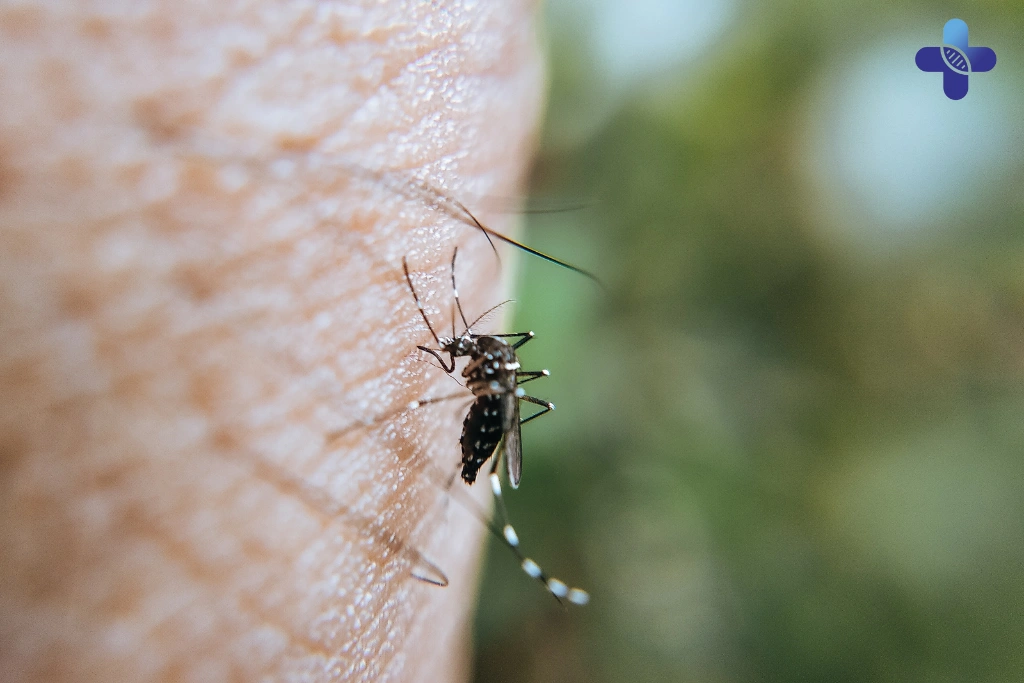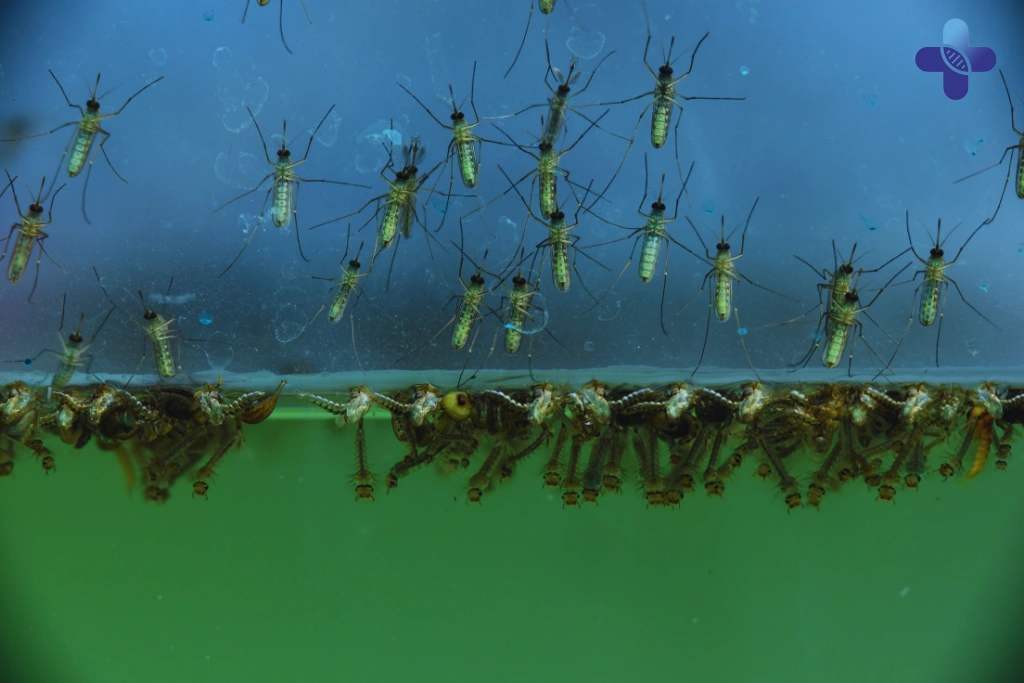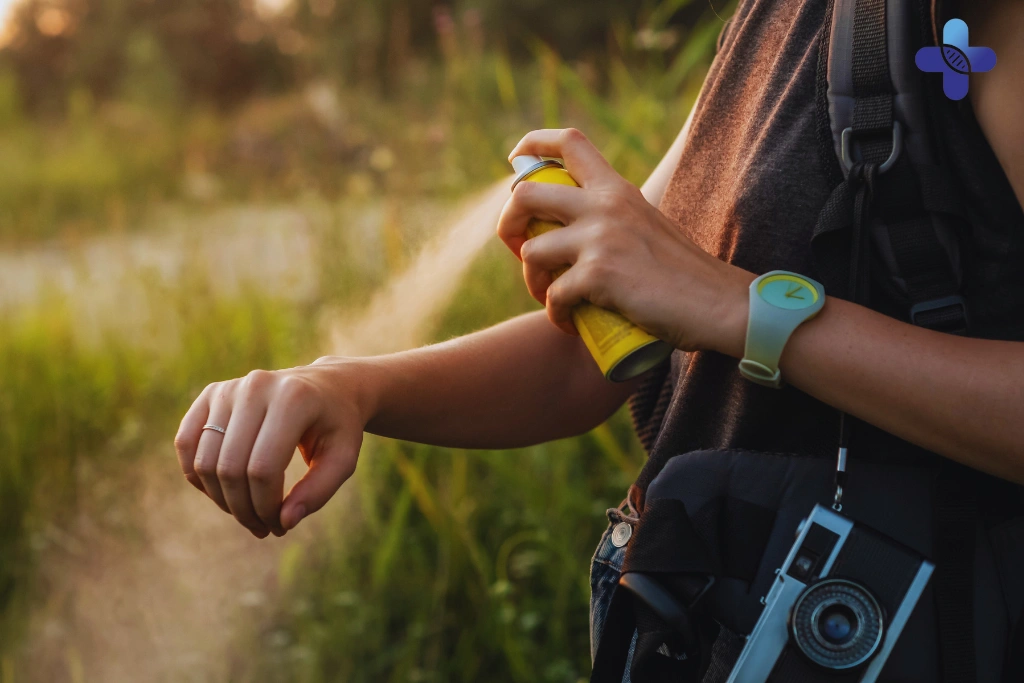During the rainy months, Bali’s warm temperatures and high humidity create perfect breeding grounds for mosquitoes. This means the risk of tropical diseases like dengue fever, chikungunya, and malaria increases.
According to WHO and Kemenkes, early prevention and rapid treatment are essential for reducing complications. Whether you’re here for a short holiday or living long-term, staying alert during mosquito season could make all the difference. If symptoms appear, a quick check at a trusted Medical Clinic in Bali like Life Everyouth is crucial.
How Bali’s Mosquito Season Could Affect Your Health

Bali’s tropical climate brings beautiful scenery — but also a thriving mosquito population. The bali mosquito season health risk is often underestimated by travelers and expats, even though it can lead to serious illnesses.
At Life Everyouth Bali, we’ve seen how quickly a minor mosquito bite can turn into a significant health concern, especially during peak season. Knowing what to expect and how to protect yourself is key to staying healthy.
Understanding Bali’s Mosquito Season

Bali’s tropical weather and seasonal rains create the perfect conditions for mosquito breeding, making bali mosquito season health a concern for anyone on the island. During this time, the number of mosquitoes increases sharply, bringing a higher risk of diseases like dengue and chikungunya. WHO and Kemenkes emphasize that knowing when mosquito activity peaks helps you plan your prevention steps. At Life Everyouth Bali, a reliable Medical Clinic in Bali, we educate both visitors and residents on how to stay safe during this period.
Weather Patterns and Mosquito Breeding
Bali’s mosquito season typically peaks between November and April, when heavy rains and standing water accelerate breeding. WHO highlights that stagnant water — even in small amounts — is enough for mosquitoes to reproduce rapidly.
Life Everyouth Bali, as a reliable Bali Medical Clinic, advises residents and visitors to inspect their surroundings regularly. Removing potential breeding sites is a simple yet powerful way to reduce bali mosquito season health risks.
Peak Times for Mosquito Activity
Mosquitoes are most active during early morning and late afternoon, though some species bite at night. This means outdoor activities during these hours require extra caution.
By consulting Life Everyouth, a trusted Medical Clinic Bali, you can learn practical prevention methods, such as using repellents and wearing protective clothing during high-risk times.
Health Risks Linked to Mosquito Season
When mosquito numbers surge, the chance of contracting mosquito-borne illnesses increases, making bali mosquito season health an issue not to ignore. Dengue fever, chikungunya, and malaria can start with mild symptoms that quickly escalate, so early checks matter. For deeper insights on joint pain, fever patterns, and recovery, see our pillar guide Chikungunya in Bali. Life Everyouth, a trusted Bali Medical Clinic, provides rapid testing and treatment aligned with WHO and Kemenkes recommendations.
Mosquito-Borne Diseases in Bali
Common illnesses during mosquito season include dengue fever, chikungunya, and, in rare cases, malaria. WHO warns that these diseases can cause high fever, joint pain, and fatigue, sometimes leading to hospitalization.
At Life Everyouth Bali, our Bali Medical Clinic offers rapid testing and treatment to manage these infections before complications arise. This is vital for both tourists and expats concerned about bali mosquito season health.
How Quick Action Can Reduce Complications
Kemenkes emphasizes that early diagnosis can significantly lower the severity of mosquito-borne illnesses.
If you feel unwell, Life Everyouth, as a responsive Medical Clinic in Bali, can perform quick assessments and start treatment immediately. This proactive approach is your best defense against long recovery times.
Protecting Yourself During Mosquito Season

The best way to lower bali mosquito season health risks is to prevent bites before they happen. Wearing long sleeves, using repellents with DEET or picaridin, and sleeping under mosquito nets are simple but effective measures. Staying hydrated and maintaining strong immunity also help your body fight off infections more effectively. Life Everyouth Bali, as a leading Medical Clinic Bali, provides tailored prevention advice for both tourists and locals.
Clothing, Repellents, and Home Protection
Wearing long sleeves, using repellents containing DEET or picaridin, and installing window screens are simple yet effective strategies. WHO and Kemenkes agree that personal protection is the first line of defense against bites.
For personalized prevention tips, consult Life Everyouth Bali, a Bali Medical Clinic that understands local bali mosquito season health challenges.
Why Hydration and Immunity Matter
A strong immune system helps your body fight infections more effectively. Staying hydrated and eating nutrient-rich foods is especially important during mosquito season.
At Life Everyouth, our Medical Clinic Bali also offers IV therapy options to boost hydration and immunity for those at higher risk.
Don’t let mosquito season ruin your Bali experience. If you start feeling unwell — even with mild fever, fatigue, or dehydration — consider getting an IV Drip for faster recovery. You can schedule your session at Life Everyouth IV Drip Therapy in Bali and receive hydration, nutrients, and professional care from our medical team.
Conclusion Bali’s Mosquito Season: Health Risks and Prevention (2025)

Mosquito season in Bali is a natural part of the tropical cycle, but it doesn’t have to compromise your health. By understanding when the risks are highest and taking preventive measures, you can enjoy your time here without worry.
If symptoms develop, visiting a reliable Medical Clinic in Bali like Life Everyouth Bali ensures you get timely and effective care.
Life Everyouth is committed to helping both tourists and expats navigate bali mosquito season health risks safely. With the right precautions and quick action, you can make the most of your Bali experience.
Frequently Asked Question (FAQ) Bali’s Mosquito Season: Health Risks and Prevention (2025)
When is mosquito season in Bali?
Mosquito season in Bali typically occurs during and after the rainy season, from November to April. This period brings higher humidity and more standing water, which creates ideal breeding grounds. According to WHO, these conditions significantly increase the risk of mosquito-borne illnesses. Being aware of the timeline helps you plan preventive measures in advance.
Are mosquito-borne diseases common in Bali?
Yes, diseases like dengue fever and chikungunya are frequently reported during the rainy months. Life Everyouth Bali, a trusted Bali Medical Clinic, often treats both locals and tourists for these illnesses. Quick detection is key to preventing complications. That’s why knowing the symptoms is just as important as knowing the season.
How can I protect myself from mosquitoes in Bali?
Protection starts with using repellents containing DEET or picaridin, wearing long sleeves, and avoiding peak biting hours. Life Everyouth, as a Medical Clinic in Bali, can recommend the most effective products. Combining personal protection with environmental control makes a big difference. Sleeping under mosquito nets also adds an extra layer of defense.
Do all mosquito bites cause illness?
No, most bites are harmless, but certain species carry viruses that can lead to serious disease. The challenge is that you can’t tell by the bite alone if it’s dangerous. WHO advises monitoring for symptoms like fever, rash, or joint pain after being bitten. If they appear, visit a Bali Medical Clinic promptly.
Can I swim during mosquito season?
Yes, swimming is generally safe, but you should dry off quickly after leaving the water. Staying in damp clothing can attract mosquitoes. Avoid swimming in or near stagnant water, as it’s a breeding site. Choosing well-maintained pools further reduces your exposure risk.
What’s the best mosquito repellent for Bali?
WHO recommends repellents with DEET, picaridin, or natural citronella for effective protection. The choice depends on your skin sensitivity and activity level. Applying repellent regularly, especially after sweating or swimming, is essential. Life Everyouth Bali can help you choose the safest option for your needs.
Should I get vaccinated before visiting Bali?
While there’s no vaccine for dengue or chikungunya, other vaccines may be recommended based on your travel plans. Visiting a travel clinic or Medical Clinic Bali ensures you get tailored advice. Some travelers may benefit from vaccines like Japanese Encephalitis or Hepatitis A. Planning ahead gives your body time to build immunity.
Is it safe to travel to Bali during mosquito season?
Yes, with the right precautions, travel during mosquito season is safe for most visitors. Wearing protective clothing, using repellents, and staying in screened accommodations are effective measures. Staying hydrated and maintaining strong immunity also help. Awareness of bali mosquito season health risks ensures you can respond quickly if symptoms arise.
Can I get chikungunya twice?
Chikungunya infection usually provides long-term immunity, but reinfections are rare, not impossible. WHO notes that immunity may not last for life in all individuals. Continued prevention is still necessary, even after recovery. Using repellents and protective measures remains your best safeguard.
Where should I go if I suspect mosquito-borne illness?
Seek medical evaluation immediately at a reliable Medical Clinic in Bali like Life Everyouth. Early diagnosis can reduce complications and speed recovery. Our team provides rapid testing and treatment tailored to each condition. Acting quickly is the safest way to protect your health in Bali.
